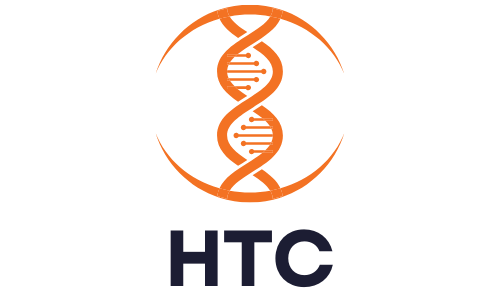Genomics and Personalized Medicine: Investment Opportunities
In recent years, the fields of genomics and personalized medicine have seen remarkable advancements, revolutionizing the way we understand and treat diseases. Genomics, the study of an organism's complete set of DNA, including all of its genes, has unlocked the potential to decode the genetic underpinnings of various conditions. Personalized medicine, which tailors medical treatment to the individual characteristics of each patient, leverages this genetic information to provide more precise and effective healthcare.
The importance and relevance of these fields in today's healthcare landscape cannot be overstated. As we move towards a more data-driven approach to medicine, the ability to understand an individual's genetic makeup offers unparalleled opportunities to improve patient outcomes. From predicting disease risk to developing targeted therapies, genomics and personalized medicine hold the promise of transforming healthcare into a more proactive and preventive discipline.
This blog aims to explore the burgeoning investment opportunities within the genomics and personalized medicine sectors. With the market for these technologies expanding rapidly, investors have a unique chance to be at the forefront of a medical revolution. We will look into the current market landscape, highlight key technologies and players, and provide strategic insights for identifying promising investment opportunities in this dynamic and rapidly evolving field.
Understanding Genomics and Personalized Medicine
Genomics is the comprehensive study of the complete set of DNA (the genome) in an organism, including all of its genes. It involves the sequencing, analysis, and interpretation of genetic information to understand how genes interact with each other and with the environment. The scope of genomics extends beyond individual genes, focusing on the complex relationships within the entire genome. This holistic approach allows scientists to identify genetic variations that contribute to diseases, understand hereditary conditions, and explore the genetic basis of health and development.
Personalized medicine, also known as precision medicine, is an innovative approach that tailors medical treatment to the individual characteristics of each patient. By considering a person’s genetic makeup, lifestyle, and environmental factors, personalized medicine aims to deliver more precise, predictable, and effective healthcare.
The benefits of personalized medicine are manifold:
- Targeted Therapies: Treatments can be designed to target specific genetic mutations, leading to more effective and less harmful interventions.
- Preventive Healthcare: Genetic information can help predict the risk of certain diseases, allowing for early intervention and preventive measures.
- Improved Patient Outcomes: Personalized treatment plans can lead to better management of chronic conditions and more successful outcomes in acute care.
- Reduced Trial and Error: Personalized medicine reduces the need for a trial-and-error approach to find effective treatments, thereby increasing efficiency and reducing healthcare costs.
Key Advancements and Technologies Driving the Field
The fields of genomics and personalized medicine have been propelled forward by several key advancements and technologies:
- Next-Generation Sequencing (NGS): NGS technologies have dramatically reduced the cost and time required to sequence a genome, making genomic data more accessible for research and clinical use. This technology enables comprehensive analysis of genetic variations and their associations with diseases.
- CRISPR and Gene Editing: CRISPR-Cas9 and other gene-editing technologies allow for precise modifications of the genome. This capability is revolutionizing the treatment of genetic disorders by enabling the correction of faulty genes directly.
- Bioinformatics and Data Analytics: The vast amount of data generated by genomic studies requires sophisticated bioinformatics tools and data analytics platforms. These technologies facilitate the interpretation of complex genetic information, helping to identify meaningful patterns and insights.
- Pharmacogenomics: This field studies how genes affect a person's response to drugs. By understanding genetic variations that influence drug metabolism and efficacy, pharmacogenomics helps in designing personalized drug regimens that maximize therapeutic benefits and minimize adverse effects.
- Companion Diagnostics: These are tests used in conjunction with specific therapies to determine their suitability for a particular patient based on their genetic profile. Companion diagnostics are essential for the development and application of targeted therapies.
The convergence of these advancements is driving the rapid evolution of genomics and personalized medicine, opening up new frontiers in medical research and clinical practice. As the technologies continue to advance, the potential for transformative impacts on healthcare grows, making this an exciting area for investment and innovation.
Market Overview
Current Market Size and Growth Projections
The genomics and personalized medicine market is experiencing significant growth, driven by technological advancements and increasing demand for more effective and personalized healthcare solutions. As of 2023, the global genomics market was valued at approximately $24 billion and is expected to reach over $50 billion by 2030, growing at a compound annual growth rate (CAGR) of around 10%. Similarly, the personalized medicine market is projected to grow from $60 billion in 2023 to nearly $130 billion by 2030, with a CAGR of around 11%. This robust growth is fueled by the expanding applications of genomic technologies, increased investments in research and development, and the rising prevalence of chronic diseases and genetic disorders.
Key Players and Stakeholders in the Genomics and Personalized Medicine Industry
The genomics and personalized medicine industry is comprised of a diverse array of key players and stakeholders, including:
- Pharmaceutical and Biotechnology Companies: Major companies like Illumina, Thermo Fisher Scientific, and Roche are leading the charge in genomics research and development. These companies are investing heavily in next-generation sequencing technologies, gene editing, and personalized therapies.
- Healthcare Providers and Institutions: Hospitals, clinics, and research institutions are adopting genomics and personalized medicine approaches to improve patient care. Institutions like the Mayo Clinic and MD Anderson Cancer Center are at the forefront of integrating these technologies into clinical practice.
- Academic and Research Institutions: Universities and research centers play a crucial role in advancing genomics and personalized medicine. Institutions such as the Broad Institute and the Wellcome Sanger Institute are conducting groundbreaking research that drives innovation in the field.
- Regulatory and Government Bodies: Organizations like the U.S. Food and Drug Administration (FDA) and the European Medicines Agency (EMA) regulate the development and commercialization of genomics and personalized medicine products. Governments are also investing in national genomics initiatives to enhance healthcare outcomes.
- Investors and Venture Capitalists: A growing number of investors are recognizing the potential of genomics and personalized medicine, leading to increased funding and support for startups and emerging companies in this sector.
Notable Labs, an exemplary pioneer in predictive precision medicine, is revolutionizing personalized healthcare through its innovative technologies. The company's proprietary Predictive Precision Medicine Platform (PPMP) leverages advanced data analytics and machine learning to accurately predict patient responses to treatments, particularly in oncology.
By focusing on individual patient profiles, Notable Labs aims to enhance treatment efficacy and reduce adverse effects, offering significant promise for personalized medicine. Their recent advancements, such as the PPMP-guided enrollment in clinical trials, demonstrate their commitment to transforming the landscape of precision medicine and present lucrative investment opportunities in the biotech sector.
Trends and Developments Shaping the Market
Several key trends and developments are shaping the genomics and personalized medicine market:
- Integration of Artificial Intelligence and Machine Learning: AI and machine learning are being used to analyze large genomic datasets, identify patterns, and predict disease risk. These technologies enhance the accuracy and efficiency of genomic analysis, leading to more effective personalized treatments.
- Expansion of Direct-to-Consumer Genetic Testing: Companies like 23andMe and AncestryDNA are offering direct-to-consumer genetic testing services, allowing individuals to access their genetic information and make informed health decisions. This trend is increasing public awareness and interest in genomics.
- Advancements in CRISPR and Gene Editing Technologies: Ongoing research and development in CRISPR and other gene-editing technologies are opening up new possibilities for treating genetic disorders and developing novel therapies. These advancements are expected to drive significant market growth.
- Collaborations and Partnerships: Collaborations between pharmaceutical companies, biotech firms, and academic institutions are fostering innovation and accelerating the development of new genomic technologies and personalized medicine approaches.
- Regulatory Support and Incentives: Governments and regulatory bodies are providing support and incentives for genomics research and personalized medicine initiatives. Policies aimed at reducing regulatory barriers and promoting innovation are contributing to market expansion.
- Emphasis on Precision Oncology: Personalized medicine is making significant strides in oncology, with targeted therapies and companion diagnostics becoming standard practices in cancer treatment. The focus on precision oncology is driving substantial investment and development in the field.
These trends and developments are creating a dynamic and rapidly evolving market landscape, offering numerous opportunities for investors to capitalize on the growth and innovation in genomics and personalized medicine.
Investment Potential in Genomics
Overview of Genomics Technologies with High Investment Potential
The genomics field is burgeoning with innovative technologies that promise to transform healthcare and create lucrative investment opportunities. Among these, gene sequencing technologies, CRISPR and gene editing, and bioinformatics and data analytics stand out as areas with particularly high potential.
Gene Sequencing Technologies
Gene sequencing technologies have revolutionized the way we study genetics by enabling the rapid and accurate sequencing of entire genomes. These technologies have significantly decreased in cost over the past decade, making genomic data more accessible for research and clinical applications. Companies like Illumina and Pacific Biosciences are leading the market with their advanced sequencing platforms. Investments in this area are driven by the growing demand for personalized medicine, cancer genomics, and rare disease research.
Key investment opportunities in gene sequencing include:
- Next-Generation Sequencing (NGS): NGS platforms are widely used for their speed, accuracy, and scalability. They are essential tools for research, diagnostics, and clinical applications.
- Single-Cell Sequencing: This technology allows for the analysis of genetic information at the single-cell level, providing insights into cellular heterogeneity and disease mechanisms.
- Long-Read Sequencing: Long-read technologies offer more comprehensive and accurate genome assemblies, particularly useful for identifying structural variations and complex genomic regions.
CRISPR and Gene Editing:
CRISPR-Cas9 and other gene-editing technologies have opened up new possibilities for precise genetic modifications. These technologies hold the promise of curing genetic disorders, developing new therapies, and enhancing agricultural productivity. Companies like Editas Medicine, CRISPR Therapeutics, and Intellia Therapeutics are at the forefront of developing CRISPR-based therapies.
Key investment opportunities in CRISPR and gene editing include:
- Therapeutic Applications: Gene editing is being explored for treating a wide range of genetic disorders, including sickle cell anemia, cystic fibrosis, and muscular dystrophy.
- Agricultural Biotechnology: CRISPR is being used to develop crops with improved traits such as disease resistance, drought tolerance, and enhanced nutritional content.
- Industrial Biotechnology: Gene editing is also being applied to create microorganisms for biofuel production, waste management, and bioremediation.
Bioinformatics and Data Analytics:
The explosion of genomic data has necessitated advanced bioinformatics and data analytics tools to interpret and utilize this information effectively. Bioinformatics combines biology, computer science, and information technology to analyze and interpret complex genetic data. Companies like Illumina, Thermo Fisher Scientific, and BGI Genomics are key players in this space.
Key investment opportunities in bioinformatics and data analytics include:
- Data Integration Platforms: These platforms aggregate and analyze data from various sources, providing comprehensive insights into genetic information.
- AI and Machine Learning: AI and machine learning algorithms are being used to identify patterns in genomic data, predict disease risks, and develop personalized treatment plans.
- Cloud-Based Solutions: Cloud computing is enabling the storage and analysis of large genomic datasets, facilitating collaborative research and accelerating discoveries.
Case Studies of Successful Genomics Companies and Their Growth Trajectories
1. Illumina: As a leader in gene sequencing technologies, Illumina has consistently demonstrated strong growth. The company’s revenue has increased significantly due to the widespread adoption of its sequencing platforms in research and clinical settings. Illumina’s innovative products and strategic acquisitions have solidified its position in the genomics market.
2. CRISPR Therapeutics: This company has made significant strides in developing CRISPR-based therapies. With several clinical trials underway for conditions like sickle cell disease and beta-thalassemia, CRISPR Therapeutics has attracted substantial investment and partnership opportunities. Its promising pipeline and strategic collaborations highlight its potential for long-term growth.
3. Pacific Biosciences: Known for its long-read sequencing technology, Pacific Biosciences has seen rapid growth and increased market penetration. The company's platforms are highly regarded for their accuracy and utility in complex genome analysis. Strategic partnerships and continuous technological advancements have driven its success.
Potential Risks and Challenges in Genomics Investments
While the genomics sector offers significant investment potential, it is not without risks and challenges:
- Regulatory Hurdles: The regulatory landscape for genomics technologies is complex and constantly evolving. Ensuring compliance with regulations can be time-consuming and costly.
- Ethical Considerations: Gene editing and genomic data privacy raise ethical concerns that can impact public perception and regulatory policies.
- Technological Risks: Rapid advancements in technology can render existing platforms obsolete. Staying ahead of technological trends requires continuous innovation and investment.
- Market Competition: The genomics market is highly competitive, with many companies vying for market share. Strategic differentiation and innovation are critical for success.
- Intellectual Property Issues: Protecting intellectual property in the genomics field can be challenging due to the rapid pace of innovation and potential for patent disputes.
Investment Potential in Personalized Medicine
Overview of Personalized Medicine Technologies with High Investment Potential
Personalized medicine technologies are revolutionizing healthcare by providing tailored treatments that consider individual genetic profiles, lifestyles, and environmental factors. These technologies include companion diagnostics, pharmacogenomics, and targeted therapies, all of which present significant investment opportunities.
Companion Diagnostics:
Companion diagnostics are tests or assays developed alongside specific therapies to determine their suitability for individual patients based on their genetic makeup. These diagnostics ensure that patients receive the most effective treatments while minimizing adverse effects. Companies like Roche, Qiagen, and Thermo Fisher Scientific are leaders in the companion diagnostics market, which is expected to grow substantially in the coming years.
Key investment opportunities in companion diagnostics include:
- Cancer Diagnostics: Companion diagnostics are widely used in oncology to identify patients who will benefit from specific targeted therapies.
- Infectious Diseases: These diagnostics help determine the most effective antiviral or antibiotic treatments for patients based on their genetic profiles.
- Chronic Conditions: Companion diagnostics are being developed for a range of chronic conditions, including cardiovascular diseases and diabetes, to personalize treatment plans.
Pharmacogenomics:
Pharmacogenomics studies how genetic variations influence individual responses to drugs. This field aims to optimize drug efficacy and safety by tailoring treatments based on genetic profiles. Companies like Admera Health and Myriad Genetics are at the forefront of pharmacogenomics, offering tests that guide drug prescriptions and dosages.
Key investment opportunities in pharmacogenomics include:
- Drug Response Prediction: Tests that predict how patients will respond to specific medications, reducing trial-and-error prescribing and enhancing treatment outcomes.
- Adverse Reaction Minimization: Pharmacogenomic tests that identify patients at risk of adverse drug reactions, improving patient safety.
- Personalized Drug Development: Integrating pharmacogenomics into drug development processes to create more effective and targeted therapies.
Targeted Therapies
Targeted therapies are treatments designed to specifically target the molecular and genetic drivers of a disease, particularly in cancer. These therapies offer higher efficacy and fewer side effects compared to traditional treatments. Companies like Novartis, Pfizer, and AstraZeneca are leading the development of targeted therapies, which are rapidly gaining traction in the market.
Key investment opportunities in targeted therapies include:
- Oncology: Targeted therapies are extensively used in cancer treatment, with many new drugs in the pipeline aimed at specific genetic mutations.
- Autoimmune Diseases: Research is ongoing to develop targeted therapies for autoimmune diseases, offering new hope for patients with conditions like rheumatoid arthritis and lupus.
- Neurological Disorders: Emerging targeted therapies for neurological disorders, such as Alzheimer's and Parkinson's, present significant growth potential.
Case Studies of Successful Personalized Medicine Companies and Their Growth Trajectories
1. Foundation Medicine: Acquired by Roche in 2018, Foundation Medicine specializes in comprehensive genomic profiling for cancer patients. The company’s growth trajectory has been fueled by its innovative companion diagnostics and partnerships with pharmaceutical companies to develop targeted therapies.
2. Myriad Genetics: Known for its pioneering work in genetic testing and personalized medicine, Myriad Genetics has developed a robust portfolio of pharmacogenomic tests. The company’s focus on expanding its test offerings and strategic collaborations has driven its sustained growth.
3. Guardant Health: Guardant Health focuses on liquid biopsy technologies for cancer detection and monitoring. Its Guardant360 test is widely used to guide targeted therapies in oncology. The company’s innovative approach and successful clinical trials have attracted significant investment and partnerships.
Potential Risks and Challenges in Personalized Medicine Investments
Investing in personalized medicine presents unique challenges and risks:
- Regulatory Complexity: The development and approval of personalized medicine technologies are subject to stringent regulatory requirements, which can be time-consuming and costly.
- High Development Costs: The research and development of personalized medicine technologies require substantial investment, with uncertain returns.
- Data Privacy Concerns: The collection and use of genetic data raise privacy concerns that can impact public acceptance and regulatory policies.
- Reimbursement Challenges: Securing reimbursement from healthcare payers for personalized medicine tests and treatments can be challenging, affecting market adoption.
- Scientific and Technical Risks: Personalized medicine is a rapidly evolving field, and new scientific discoveries can quickly change the landscape, making existing technologies obsolete.
Despite these challenges, the personalized medicine sector offers immense potential for investors willing to navigate the complexities. The continued advancements in genetics and molecular biology, coupled with increasing demand for tailored healthcare solutions, ensure that personalized medicine will remain a dynamic and lucrative investment area.
Strategic Considerations for Investors
Key Factors to Consider When Investing in Genomics and Personalized Medicine
Investing in genomics and personalized medicine requires a strategic approach, considering various factors that can impact the success and profitability of investments. Key considerations include the regulatory environment, ethical considerations, technological advancements, and the innovation pipeline.
Regulatory Environment:
The regulatory landscape for genomics and personalized medicine is complex and varies across regions. Investors must understand the regulatory requirements for the development, approval, and commercialization of genomics technologies and personalized therapies. Key regulatory bodies include the U.S. Food and Drug Administration (FDA) and the European Medicines Agency (EMA).
- Compliance and Approval Processes: Ensure that companies have a clear regulatory strategy and a track record of compliance with regulatory requirements. Delays or failures in obtaining regulatory approvals can significantly impact the viability of investments.
- Evolving Regulations: Stay informed about changes in regulations and policies that may affect the genomics and personalized medicine market. Emerging regulations around data privacy, gene editing, and genetic testing can influence market dynamics.
Ethical Considerations:
Ethical considerations play a critical role in the adoption and acceptance of genomics and personalized medicine technologies. Investors should evaluate how companies address ethical issues related to genetic testing, gene editing, and data privacy.
- Informed Consent: Companies should have robust processes in place to ensure informed consent for genetic testing and data collection.
- Genetic Data Privacy: Assess how companies protect and manage genetic data to safeguard patient privacy and comply with data protection regulations.
- Ethical Use of Gene Editing: Consider the ethical implications of gene editing technologies and how companies address concerns related to off-target effects, germline modifications, and equitable access to therapies.
Technological Advancements and Innovation Pipeline:
The pace of technological advancement in genomics and personalized medicine is rapid, and staying ahead of the curve is essential for successful investments.
- Cutting-Edge Technologies: Look for companies developing or utilizing state-of-the-art technologies such as CRISPR, next-generation sequencing (NGS), and advanced bioinformatics tools.
- Innovation Pipeline: Evaluate the company’s pipeline of products and technologies, including those in development and clinical trials. A strong pipeline indicates ongoing innovation and potential for future growth.
- Intellectual Property: Assess the company’s intellectual property portfolio, including patents and proprietary technologies. Robust IP protection can provide a competitive advantage and safeguard against market competition.
Strategies for Identifying Promising Startups and Emerging Technologies
Identifying promising startups and emerging technologies in genomics and personalized medicine requires a strategic approach and thorough due diligence.
- Industry Conferences and Networking: Attend industry conferences, seminars, and networking events to stay updated on the latest trends and connect with innovators and thought leaders.
- Incubators and Accelerators: Explore opportunities to invest in startups emerging from reputable incubators and accelerators that specialize in genomics and personalized medicine.
- Collaborations with Research Institutions: Look for startups with strong collaborations and partnerships with leading academic and research institutions, as these relationships often drive innovation and provide access to cutting-edge research.
Importance of Collaboration and Partnerships in Driving Innovation
Collaboration and partnerships are vital for driving innovation and accelerating the development of genomics and personalized medicine technologies. Investors should consider the collaborative strategies of companies in this sector.
- Strategic Alliances: Companies that form strategic alliances with pharmaceutical firms, biotech companies, and research institutions are better positioned to leverage complementary expertise and resources.
- Public-Private Partnerships: Public-private partnerships can provide access to funding, regulatory support, and research infrastructure, enhancing the company’s ability to innovate and commercialize new technologies.
- Collaborative Research and Development: Evaluate the company’s approach to collaborative R&D efforts, including co-development agreements and joint ventures. These collaborations can expedite the development and market entry of new products.
Future Outlook
Predictions for the Future of Genomics and Personalized Medicine
The future of genomics and personalized medicine holds immense promise, with continuous advancements poised to revolutionize healthcare. Predictions for the coming years include:
- Widespread Clinical Adoption: As the cost of genomic technologies continues to decrease and their accuracy improves, personalized medicine will become more integrated into routine clinical practice. This will lead to more widespread use of genetic testing and tailored treatments in healthcare settings.
- Integration with Digital Health: The convergence of genomics with digital health technologies, such as wearable devices and mobile health applications, will provide real-time health monitoring and personalized insights, enhancing preventive care and disease management.
- Expanded Applications: The applications of genomics and personalized medicine will extend beyond oncology and rare diseases to include common conditions such as cardiovascular diseases, diabetes, and neurological disorders. This will broaden the market and create new opportunities for innovation.
- Advancements in Artificial Intelligence: AI and machine learning will play a crucial role in analyzing vast amounts of genomic data, identifying novel biomarkers, and predicting disease risks. These technologies will enhance the precision and efficiency of personalized medicine.
Emerging Trends and Potential Disruptors
Several emerging trends and potential disruptors are expected to shape the future landscape of genomics and personalized medicine:
- Liquid Biopsies: Non-invasive liquid biopsies, which detect genetic mutations and other biomarkers from blood samples, are gaining traction. These tests offer a less invasive alternative to traditional tissue biopsies and have the potential to revolutionize cancer detection and monitoring.
- Microbiome Research: The study of the human microbiome and its interactions with the genome is uncovering new insights into health and disease. Personalized treatments targeting the microbiome are expected to emerge, offering novel therapeutic approaches.
- Epigenetics: Research into epigenetic modifications, which influence gene expression without altering the DNA sequence, is advancing. Epigenetic therapies and diagnostics are likely to become important components of personalized medicine.
- Synthetic Biology: Synthetic biology, which involves designing and constructing new biological parts and systems, is poised to disrupt traditional drug development and therapeutic approaches. This field has the potential to create highly targeted and effective treatments.
Long-Term Investment Opportunities and Growth Areas
Long-term investment opportunities in genomics and personalized medicine are abundant, with several growth areas offering significant potential:
- Personalized Cancer Therapies: The development of targeted cancer therapies, including immunotherapies and precision oncology drugs, will continue to be a major growth area. Investments in companies focused on these therapies are likely to yield substantial returns.
- Rare Disease Treatments: Genomics-based approaches to diagnosing and treating rare diseases are gaining momentum. Companies developing therapies for rare genetic disorders, including gene therapies and enzyme replacement therapies, present promising investment opportunities.
- Preventive Medicine: As genetic testing becomes more accessible, there will be a growing emphasis on preventive medicine. Companies offering predictive genetic tests and personalized wellness plans will be at the forefront of this trend.
- Global Expansion: The adoption of genomics and personalized medicine is expanding globally, with significant growth potential in emerging markets. Investments in companies that are expanding their reach into these markets can capitalize on the increasing demand for advanced healthcare solutions.
- Consumer Genomics: Direct-to-consumer genetic testing is expected to grow, driven by increasing consumer interest in personal health and ancestry. Companies providing consumer genomics services, along with associated wellness and lifestyle products, represent a lucrative investment area.
Recap of key points discussed
In this blog, we have explored the transformative potential of genomics and personalized medicine and the exciting investment opportunities they present. Key points discussed include:
- Understanding Genomics and Personalized Medicine: We defined genomics and personalized medicine, highlighting their scope and benefits. Key advancements such as next-generation sequencing (NGS), CRISPR and gene editing, and bioinformatics have been identified as driving forces behind these fields.
- Market Overview: The current market size and growth projections for genomics and personalized medicine indicate robust expansion. We discussed key players and stakeholders and outlined the trends and developments shaping the market.
- Investment Potential in Genomics: We highlighted high-potential genomics technologies, including gene sequencing, CRISPR and gene editing, and bioinformatics. Case studies of successful genomics companies illustrated their growth trajectories and potential risks and challenges.
- Investment Potential in Personalized Medicine: Key technologies with high investment potential in personalized medicine, such as companion diagnostics, pharmacogenomics, and targeted therapies, were discussed. Successful companies and the associated risks and challenges were also examined.
- Strategic Considerations for Investors: Essential factors for investing in genomics and personalized medicine were covered, including regulatory environment, ethical considerations, technological advancements, and collaboration strategies.
- Future Outlook: Predictions for the future of genomics and personalized medicine, emerging trends, and long-term investment opportunities were provided to offer a comprehensive view of the evolving landscape.
The genomics and personalized medicine sectors are at the forefront of a healthcare revolution, offering unprecedented opportunities for innovation and growth. As technologies advance and become more integrated into clinical practice, the potential to improve patient outcomes and transform healthcare delivery is immense. Investors who recognize the value of these advancements and strategically navigate the complexities of the market stand to benefit significantly from the expanding opportunities.
As we move towards a future where healthcare is increasingly personalized and data-driven, the time is ripe for investors to explore opportunities in genomics and personalized medicine. By investing in cutting-edge technologies, supporting innovative startups, and fostering collaborations, investors can play a pivotal role in driving the next wave of healthcare transformation.
Take action today by:
- Staying Informed: Keep abreast of the latest developments and trends in genomics and personalized medicine.
- Networking: Attend industry conferences, seminars, and networking events to connect with key players and thought leaders.
- Conducting Due Diligence: Thoroughly evaluate potential investments, considering the regulatory environment, ethical implications, and technological advancements.
- Supporting Innovation: Invest in companies that are pushing the boundaries of what is possible in genomics and personalized medicine.
By embracing these opportunities, investors can contribute to a future where healthcare is tailored to the individual, leading to better outcomes and a healthier world. Explore the dynamic and rapidly evolving field of genomics and personalized medicine, and be a part of the revolution transforming healthcare.










